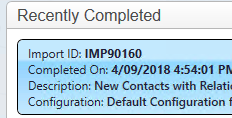thankQ Help
The following are the steps to import new contacts with relationships into thankQ.
A spreadsheet is required with a supporter id number to link the contact and their relationships. If these were existing contacts their serial numbers should be used instead of the supporter id you create.
The first sheet consists of the contact details. Add the Default address to create a household and to add the default address to the partner’s record. The Household Envelope and Letter salutations should be inserted also.

The second sheet consists of the relationship details. Parent is the contact you are matching and the Child is the contact being matched as the related contact.

1.Click Create on the tool bar of the Data Import form
2.Click the ellipse on the Excel Input File line

3.Locate and select the import file
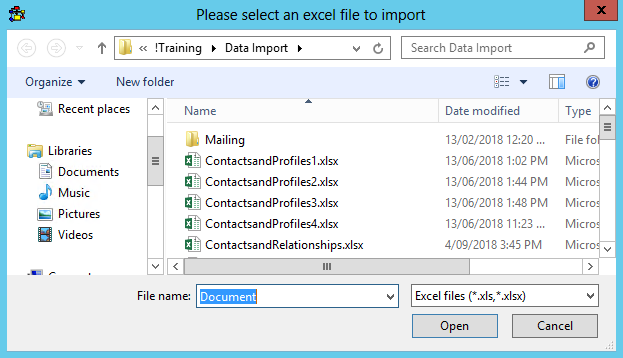
4.Enter an Import Description
5.Select the Default Configuration if applicable

6.Double click on the First (B) cell as this has a red X as it has not mapped to a thankQ field
7.Select Contacts from the drop down
8.Click F and double click on FirstName
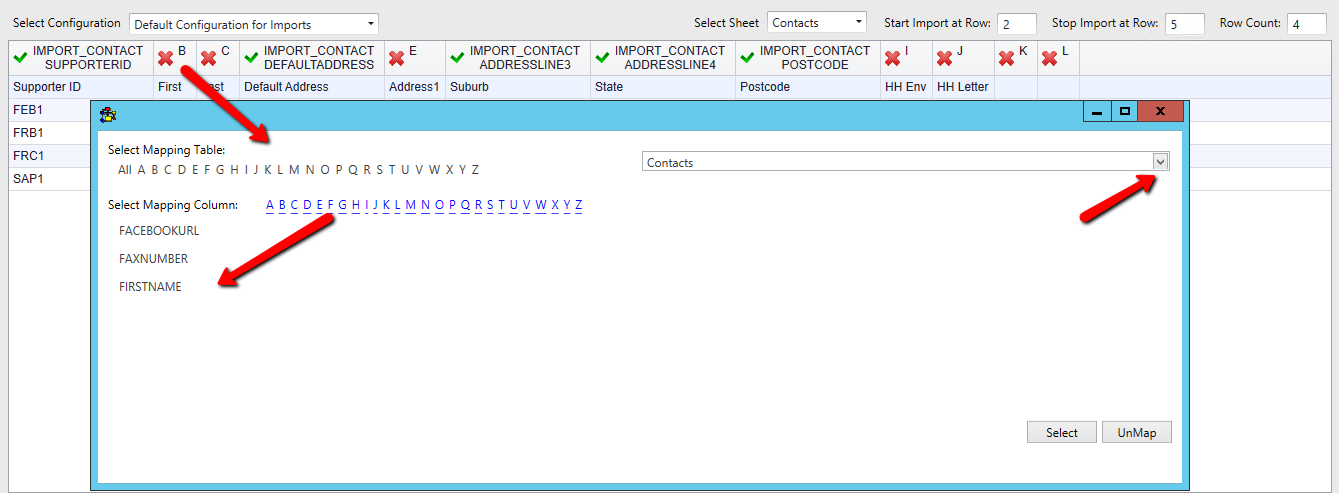
9.Double click into the Last (C) cell and locate and select the Keyname found under K
10.Double click into the Address 1 (E) field and locate and select the AddressLine1
11.Double click into the Household Env (I) field and click J to locate the JointSalutation
12.Double click into the Household Letter (J) field and locate the JointLetterSalutation

13.Click the drop down beside Select Sheet and select the Relationship sheet

14.Double click into the Parent (A) cell
15.Select the Relationship fields from the drop down
16.Double click on Parent
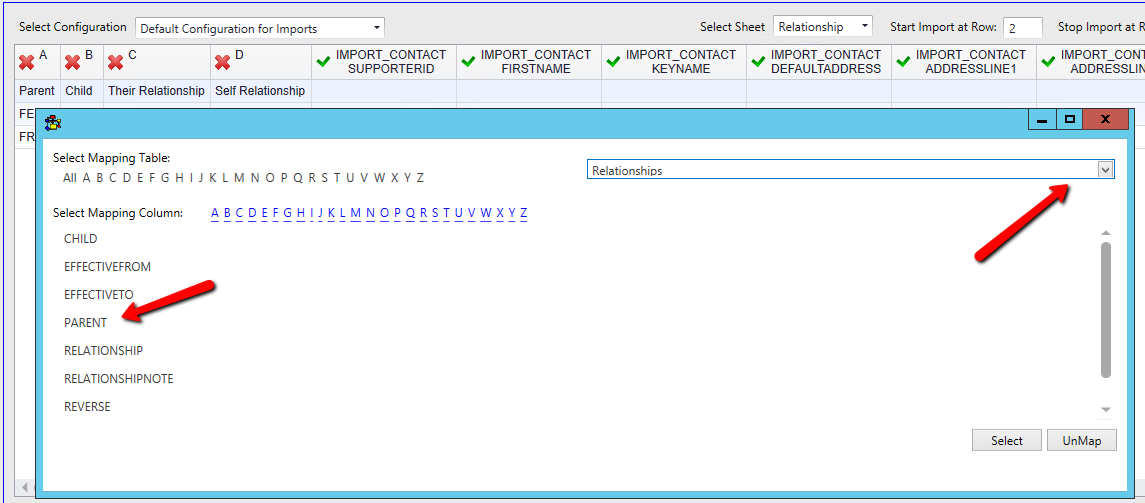
17.Double click into Child (B) and select Child from the Relationship list
18.Double click into Their Relationship (C) and select Relationship from the list
19.Double click into Self Relationship (D) and select Reverse from the list
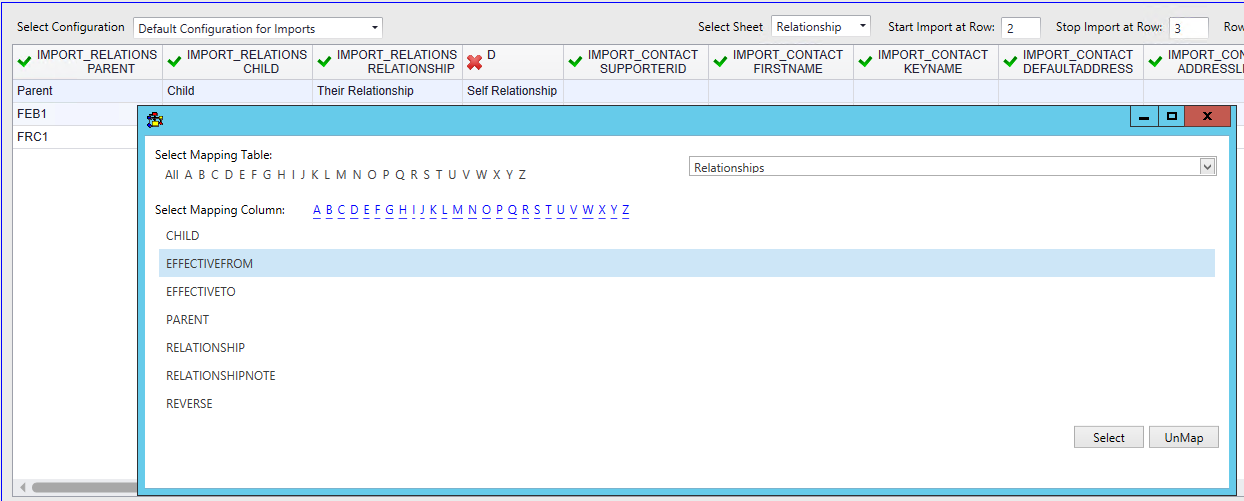
20.Click Log Data at the bottom right
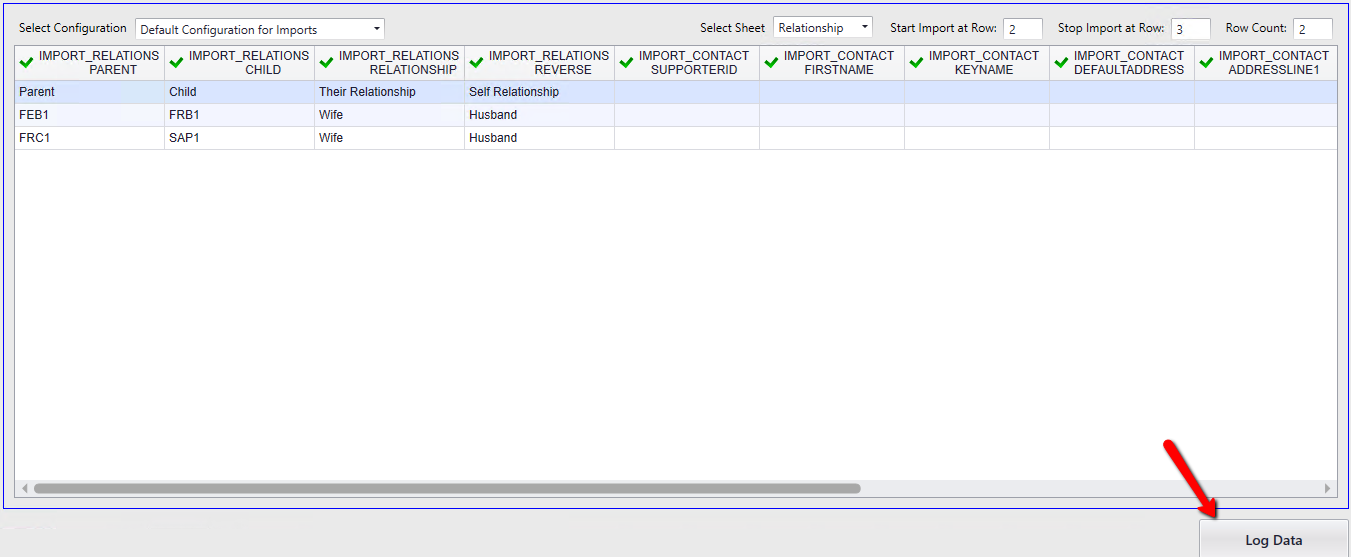
21.Click Yes if this message appears and you can proceed with unmapped fields
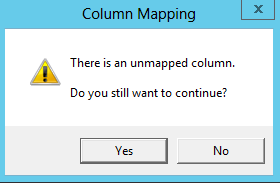
22.Click Yes to save the configuration or No to continue
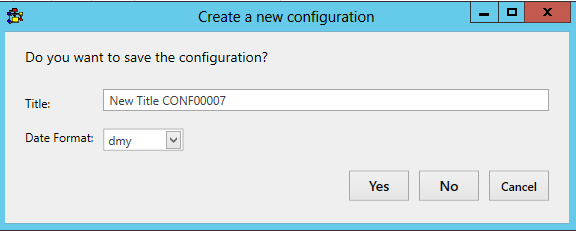
23.Click Validate on the import under Imports in work
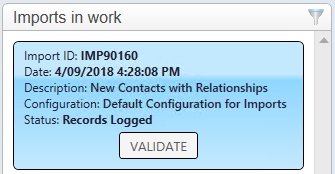
24.Click Yes to continue
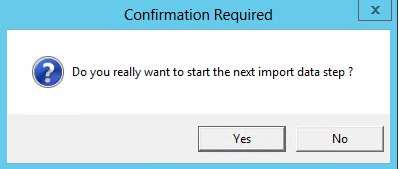
25.If there are any duplicates or validation errors fix these by double clicking on the import in the column

26.Click Mark As New if this is not a duplicate or click on the duplicate and Mark As Duplicate

27.Click Re-Validate on the tool bar

28.Click Yes to re-validate
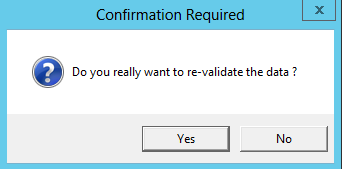
29.Click Update if there are no suspect duplicates or validation errors
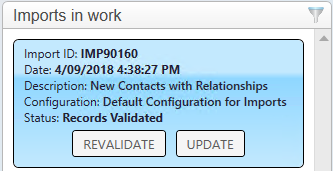
30.Click Yes to continue

31.Click Import
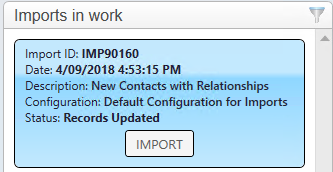
32.Click Yes to continue

If there are no errors the import can be found under the Recently Completed window
